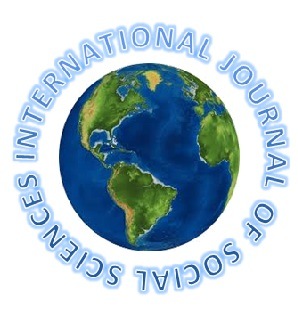
INTERNATIONAL JOURNAL OF SOCIAL SCIENCES
ISSN: 2548-0685 www.sobider.net
Responsibilities
Publisher's Responsibilities
IJSS follows the Committee on Publication Ethics (COPE)'s Code of Conduct for Journal Publishers.
The publisher is dedicated to supporting the vast efforts of the editors, the academic contributions of authors, and the respected volunteer work undertaken by reviewers.
The publisher is also responsible for ensuring that the publication system works smoothly and that ethical guidelines are applied to assist the editor, author, and reviewer in performing their ethical duties.
Editor’s Responsibilities
The editor should acknowledge receipt of submitted manuscripts within two working days of receipt and ensure an efficient, fair, and timely review process.
The editor should ensure that submitted manuscripts are processed in a confidential manner and that no content of the manuscripts will be disclosed to anyone other than the corresponding author, reviewers, and the publisher, as appropriate.
The editor should recuse himself or herself from processing manuscripts if s/he has any conflict of interest with any of the authors or institutions related to the manuscripts.
The editor should not disclose the names and other details of the reviewers to a third party without the permission of the reviewers.
The editor has the right to make the final decision on whether to accept or reject a manuscript with reference to the significance, originality, and clarity of the manuscript and its relevance to the journal.
The editor should by no means make any effort to oblige the authors to cite his or her journal either as an implied or explicit condition of accepting their manuscripts for publication.
The editor should not use for his or her own research any part of any data or work reported in submitted and as yet unpublished articles.
The editor should respond promptly and take reasonable measures when an ethical complaint occurs concerning a submitted manuscript or a published paper, and the editor should immediately contact and consult with the author. In this case, a written formal retraction or correction may also be required.
Reviewer's Responsibilities
The reviewer who feels unqualified to review the assigned manuscript or affirms that s/he cannot meet the deadline for completion of the review should immediately notify the editor and excuse himself or herself from the process of reviewing this manuscript.
The reviewer should inform the editor and recuse himself or herself from reviewing the manuscript if there is a conflict of interest. Specifically, the reviewer should recuse himself or herself from reviewing any manuscript authored or coauthored by a person with whom the reviewer has an obvious personal or academic relationship if the relationship could introduce bias or the reasonable perception of bias.
The reviewer should treat the manuscript in a confidential manner. The manuscript should not be disclosed to or discussed with others except as authorized by the editor.
The reviewer should approach the peer-review job objectively. Personal criticism of the author is unacceptable.
The reviewer should not use for his or her own research any part of any data or work reported in submitted and as yet unpublished articles.
The reviewer should immediately notify the editor of any similarities between the manuscript under review and another paper either published or under consideration by another journal. The reviewer should immediately call to the editor’s attention a manuscript containing plagiarized material or falsified data.
The process of review is conducted by the IJSS Editorial Board member, or any academic that is deemed capable of revieweing the technical and substantive aspects of a manuscript (including academics outside of the Editorial Board members).
Author's Responsibilities
The author should not submit concurrent manuscripts (or manuscripts essentially describing the same subject matter) to multiple journals. Likewise, an author should not submit any paper previously published anywhere to the journals for consideration. The publication of articles on the specific subject matter, such as clinical guidelines and translations, in more than one journal, is acceptable if certain conditions are met.
The author should present a precise and brief report of his or her research and an impartial description of its significance.
The author should honestly gather and interpret his or her research data. Publishers, editors, reviewers, and readers are entitled to request the author to provide the raw data for his or her research for the convenience of editorial review and public access. If practicable, the author should retain such data for any possible use after publication.
The author should guarantee that the works s/he has submitted are original. If the author has used work and/or words by others, appropriate citations are required. Plagiarism in all its forms constitutes unethical publishing behavior and is unacceptable.
The author should indicate explicitly all sources that have supported the research and also declare any conflict(s) of interest.
The author should give due acknowledgment to all of those who have made contributions to the research. Those who have contributed significantly to the research should be listed as coauthors. The author should ensure that all coauthors have affirmed the final version of the paper and have agreed on its final publication.
The author should promptly inform the journal editor of any obvious error(s) in his or her published paper and cooperate earnestly with the editor in retraction or correction of the paper. If the editor is notified by any party other than the author that the published paper contains an obvious error, the author should write a retraction or make the correction based on the medium of publication.









